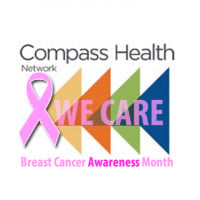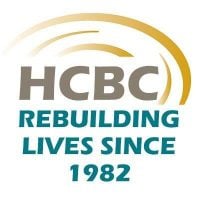About This Warrensburg, MO Facility
Pathways Behavioral Health provides a comprehensive range of evidence-based treatment approaches and services to individuals and families struggling with substance abuse and mental health issues. Located in Warrensburg, Missouri, the program provides highly personalized care in a safe and supportive environment. Pathways Behavioral Health provides a full continuum of care from detoxification, inpatient, outpatient and aftercare services.
The trained and certified clinical staff at Pathways Behavioral Health is committed to providing each person with an individualized treatment plan tailored to their needs and goals. They utilize an evidence-based multi-faceted approach to treatment which includes a combination of 12-step facilitation, cognitive-behavioral therapy, various types of therapy, trauma therapy, and motivational incentives. Pathways Behavioral Health is accredited by CARF and JCAHO, and accepts private health insurance. They strive to help clients develop the skills they need to manage their addiction and mental health issues, as well as lead safe, healthy and productive lives.
Genders
Ages
Modality
Additional
Accreditations

JCAHO

CARF
The Commission on Accreditation of Rehabilitation Facilities (CARF) is a non-profit organization that specifically accredits rehab organizations. Founded in 1966, CARF's, mission is to help service providers like rehab facilities maintain high standards of care.
Conditions and Issues Treated
Using both legal medications and illegal substances in order to maintain an addiction is substance abuse. Illegal substances can become addictive after a single use. If you are obtaining legal medications illegally, you may be suffering from substance abuse.
Fortunately facilities like Pathways Behavioral Health in Warrensburg, MO are here to help.
Opioid addiction treatment facilities in Missouri, like Pathways Behavioral Health cover both illegal and prescription opioids abuse. Most plans include detoxification and subsequent medications to ease the process. Behavioral therapies and counseling are also necessary to resolve the root cause of addiction.
When someone in Missouri struggles with both addiction and mental or emotional illness, this is considered a dual diagnosis. Dual diagnosis treatment can include emotional trauma, bipolar disorder, schizophrenia, depression. Getting treatment for these issues must occur at the same time to treat either of them effectively.
Levels of Care Offered
This center offers a variety of custom treatment tailored to individual recovery. Currently available are Aftercare Support, Drug Rehab, Dual-Diagnosis, Inpatient, Residential, Sober-Living / Half-Way, with additional therapies available as listed below.
Inpatient rehabilitation aims to treat severe addictions and co-occurring disorders. Depending on individual requirements, the duration of the stay at Pathways Behavioral Health ranges from four weeks to six months. Missouri inpatient recovery guarantees that the patient resides in an environment free of drugs.
A sober living home in Warrensburg, MO, also known as an SLH, is much like a halfway house. It is halfway between a drug or alcohol treatment facility and living at home. There are some specific rules and regulations residents must follow, like attending mandatory meetings, and household chore-type activities.
Residential treatment programs are those that offer housing and meals in addition to substance abuse treatment. Rehab facilities that offer residential treatment allow patients to focus solely on recovery, in an environment totally separate from their lives. Some rehab centers specialize in short-term residential treatment (a few days to a week or two), while others solely provide treatment on a long-term basis (several weeks to months). Some offer both, and tailor treatment to the patient’s individual requirements.
Treatment for substance abuse does not cease after an individual successfully completes a detox or rehabilitation program. A vital follow-up treatment service is aftercare support provided to individuals at Pathways Behavioral Health in Missouri after they attain initial sobriety.
Aftercare support often takes the following forms: 12-Step Programs, Outpatient Treatment Programs, and Support Groups. The most effective aftercare programs are tailored to meet an individual’s specific needs and circumstances.
Pathways Behavioral Health‘s Therapies & Programs
Treatment programs include individual therapy for the greatest chances of success. Customized individual therapy is counseling involving you and your Pathways Behavioral Health counselor. Individual therapy leads to greater peace and understanding about your triggers for addiction.
Spousal relationships bear the brunt of alcohol and drug dependence. It becomes critical to submit the relationship to couples therapy to prevent straining it further. Some facilities like Pathways Behavioral Health in Warrensburg, MO offer couples therapy options to manage intimate partnerships amid the recovery process. Other couples-focused treatment plans can provide the patient and their partner tools to get things back to normal.
When family members are more proactive and involved in the treatment procedure, it encourages the patient to advance his or her progress. Moreover, it shouldn’t be ignored that genetics play a role when it comes to addiction, so it’s better to approach the problem as a unit. Also, with proper education, family members can help an individual avoid addiction triggers and guide him or her in making lifestyle changes necessary for his or her sobriety.
It has been said that unhealed trauma is the root of most addictions. Trauma therapy is a way of addressing trauma while in a safe situation in order to heal. Healing past traumas and introducing coping strategies are strong foundations for sustained recovery from addiction. This may involve individual or group counseling or both, in a Warrensburg, MO facility. Other forms of therapy have been proven to assist in healing past traumas.
Dialectical Behavior Therapy (DBT) helps those who attend Pathways Behavioral Health understand how their feelings, beliefs, and thoughts affect their behaviors. DBT is particularly useful for people with self-harming behaviors, as well as those with substance abuse disorders. DBT teaches people how to tolerate distress, regulate their emotions, and how to become mindful.
Cognitive Behavioral Therapy (CBT) is a type of psychotherapy that focuses on the underlying thoughts and behaviors that caused the problem of addiction in the first place and may cause a relapse. Negative feelings are common in substance abuse disorders, and if not recognized, they can cause co-occurring disorders.
CBT involves strategies that help to change the thinking and behavioral pattern by cognitive restructuring. In simple terms, it helps to remove negative thoughts and provides long-term benefits. Also, CBT promotes self-awareness, self-control, and healthy ways to respond to negative thoughts. It can be administered as a mono-therapy as well as a part of combination therapy.
In the midst of an addiction certain healthy habits and behaviors can be forgotten or discarded altogether. While in treatment you will learn life skills that will help you successfully maintain sobriety and rebuild your life in Warrensburg, MO. Some examples of this are time management, social skills, nutrition, hygiene, stress management and taking care of yourself.
The 12-step program is a part of substance abuse treatment. In this program, peers help each other to achieve the goal of abstinence. It was initially developed by the founders of Alcoholics Anonymous. Due to its huge success, the 12-step program is included as a part of other substance abuse treatments.
The 12 steps guide at an individual level. It begins with the individuals accepting that they are addicts, and they understand its consequences. It is followed by focusing on the recovery process and making amends for hurting others. The program provides the benefit of cognitive restructuring, which refers to the process of change in the negative thoughts that leads to long-term benefits.
Payment Options Accepted
For specific insurance or payment methods please contact us.
Is your insurance accepted?
Ask an expert, call (888) 674-0062
Additional Details
Specifics, location, and helpful extra information.
Warrensburg, Missouri 64093 Phone Number(660) 747-1355 Meta DetailsUpdated November 25, 2023
Staff Verified
Patient Reviews
There are no reviews yet. Be the first one to write one.
Warrensburg, Missouri Addiction Information
Opioid-related overdoses in Missouri have been increasing steadily for the past three decades. In 2018, more than 1,130 people in Missouri died from opioid abuse. Methamphetamines and marijuana abuse have surpassed opioid abuse in Missouri. Missouri is the number 1 methamphetamine manufacturer in the country with more than 27 meth labs per 100,000 people.
The National Institute on Drug Abuse says drug addiction is a major problem in Warrensburg, Missouri. In 2015, there were over 1,000 admissions to treatment facilities for drug abuse in the town alone. The average cost of a 30-day stay in a drug rehab facility in Missouri is about $4,500. If you or someone you know is struggling with addiction, it's important to get help as soon as possible.
Treatment in Nearby Cities
- Trenton, MO (90.5 mi.)
- Washington, MO (145.9 mi.)
- Carrollton, MO (42.0 mi.)
- Saint Louis, MO (189.2 mi.)
- Warrensburg, MO (2.0 mi.)
Centers near Pathways Behavioral Health
The facility name, logo and brand are the property and registered trademarks of Pathways Behavioral Health, and are being used for identification and informational purposes only. Use of these names, logos and brands shall not imply endorsement. RehabNow.org is not affiliated with or sponsored by Pathways Behavioral Health.









